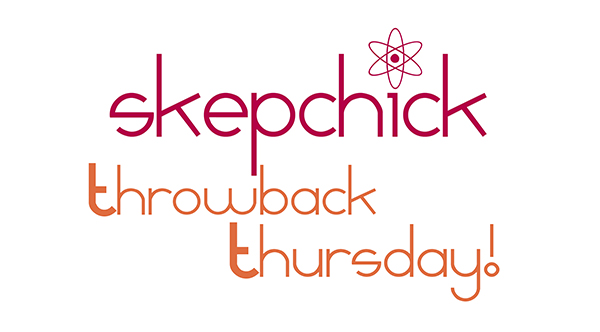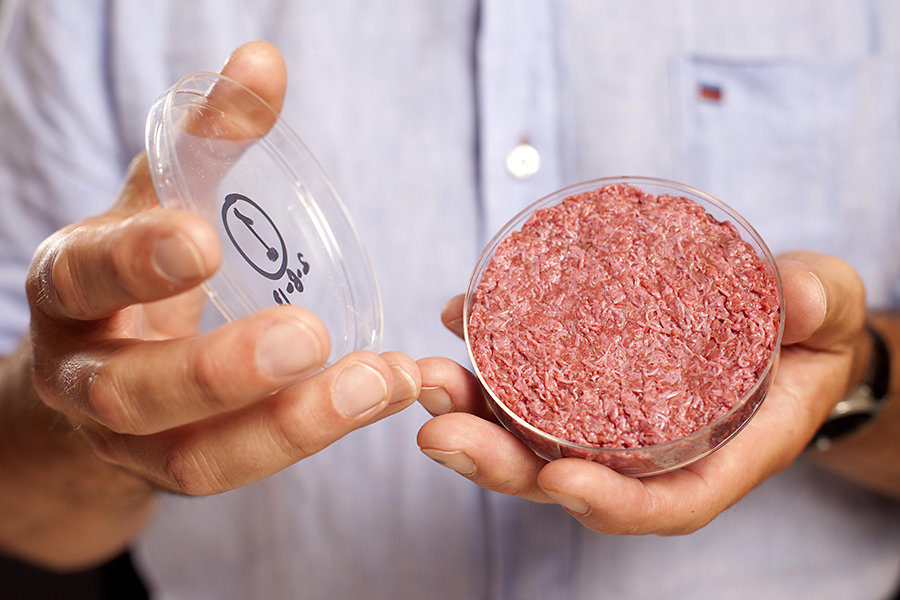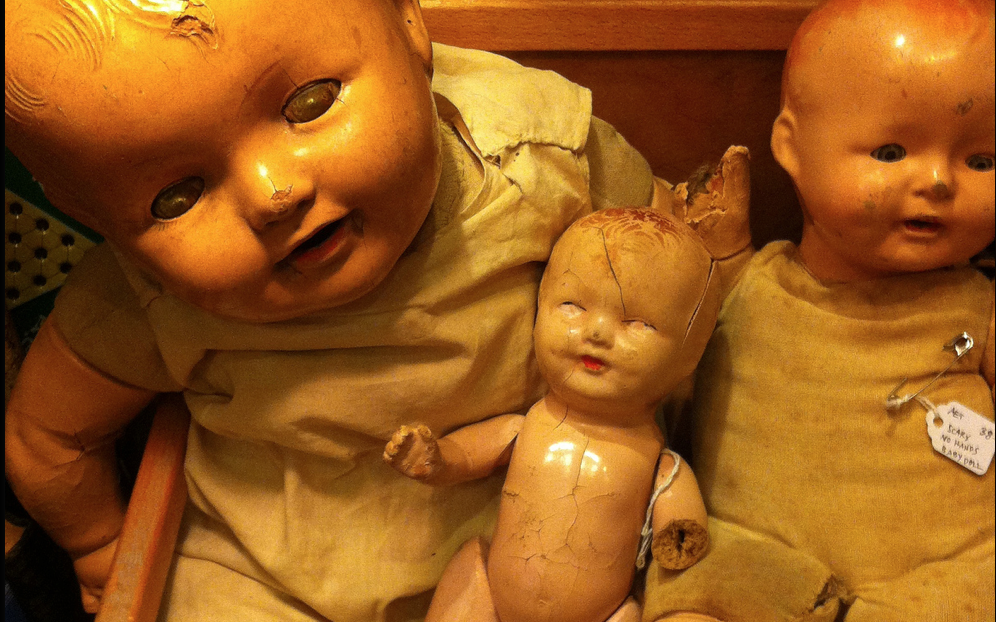Afternoon Inquisition
AI: Skeptical Sound Bites
The camera is on you…
You’re the token skeptic.
You need to encapsulate and reduce and condense critical thinking into a single sentence that’s hard-hitting, “pop” and easy to swallow.
You’ve got seconds to say something profound, something smart, something skeptical…
What is your skeptical sound bite?





Critical thinking is the art and science of moving your opinions ever closer to the truth.
Obviously there’s a lot more to it than that, but in a short sound bite that’s all I can squeeze.
Sounding nice doesn’t make something true.
How do you know it works if you didn’t try to prove that it doesn’t?
Thanks to critical thinking, I’m able to prove to you that I’m right and you’re not.
Probably.
-Skeptical is the opposite of gullible.
-Thinking critically is the only way by which we can open our eyes to the splendor of the universe around us.
Skepticism is the intersection of “Science Education” and “Consumer Protection”.
(but to be fair I think I got this from George Hrab and Tim Farley)
“Stop looking at my boobs”.
mechanism, or it didn’t happen.
The human mind is made to jump to conclusions, critical thinkers use the tools available to compensate for this.
[insert woo I’m supposed to comment on]-researchers prefer to declare their jumped-to conclusions special, search only for corroborating evidence and ignore evidence against.
Think of something you believe passionately. Now prove it wrong…
Science is the most democratic method for finding truth.
Skepticism is a willingness to agree that everything you believe can be proven wrong.
“Don’t take anyone’s word for it.”
Paraphrasing something I read from a Mexican-Spanish skeptic:
Critical thinking is about asking two simple questions: “How do you know that?” and “Can you prove it?”
I am not a cynic.
“If you want to be heard, listen first.”
“Being a skeptic shouldn’t be about making yourself feel smarter than other people, it should be about making other people feel smarter after listening to you.”
“Holy fuck… you actually believe that shit? Do you listen to yourself, or just regurgitate things?”
*ahem
“Dickfeathers” -_-
Mark Hall’s is effective.
I like something like:
“You either pay full price for whichever car the salesman recommends, or you’re a skeptic. Question everything.”
I’ll go with a Carl Sagan quotation. “…, if you are open to the point of gullibility and have not an ounce of skeptical sense in you, then you cannot distinguish the useful ideas from the worthless ones. ”
@Tracy King: Entertaining the impossible, that’s what I admire about you.
“Cite?”
‘What are you basing that on?’
I don’t know. And I don’t believe that you do, either.
James said it best ( or Carl did ) including the very last line about Tracy.
If I had to use my own words I’d say:
Critical thinking is the process of requiring evidence before you believe something to be true or not rather than seeking evidence for what you believe to be true.
Skepticism is a question asking for evidence to support a claim. Don’t believe me? I wouldn’t either.
For me, being a skeptic means knowing the difference between someone who sounds like they know what they’re talking about, and someone who actually does know what they’re talking about.
Reality is too fascinating and beautiful to believe blindly in fantasies without ever questioning them.
“We follow the evidence”
Ask questions then decide but remain open to change your mind later. A skeptical mind is limber.
I accept that the natural world is ultimately and completely knowable by logic and rational thought.
Thinking without belief, belief with rational evidence.
“I believe that… er, not ‘believe’… I know that what I believe is… well, not ‘know’… you see, I’m open to all ideas that can show me… that can be shown to be true, or at least the best and most accurate model we have of the natural world… but I’ll be happy to change my mind if there’s better evidence in the future, or, I guess, better theories that explain the evidence, but until then I’ll go with the, uh, best… stuff… we’ve got…?”
Yeah, I’m really bad at public speaking.
In “honor” of the first Sunday following the full moon that occurs on or following the spring equinox:
“Why does god hate amputees?”
YPG
I think you’ll find it’s a bit more complicated then that.
“I don’t want to believe. I want to know.”
(stolen from Carl Sagan)
Skeptics believe in truth over myth, superstition, and fairy tales and since we are always reevaluating truth skeptics change their minds. Just deal with it.
@Teaspoon:
Pics or it didn’t happen!
Trust, but verify
“All things are possible, but question everything anyhow; even when you have proof you can still be wrong.”
(this is the point where they cut me off but I keep rambling anyhow)
If you’re going to have fear or worry, at least be rational about it. You’re much more likely to be mangled in an auto accident than you ever are to be killed by a terrorist, struck by lightning, or abducted by aliens. Not saying it can’t happen, but your energy is better spent watching where you frakkin drive.
Skepticism is very open-minded: I’m willing to believe absolutely anything with my only requirement being that the evidence for it is stronger than the evidence against it.
(Technically two sentences but it’s what I say to people who accuse me of being closed-minded – it’s kinda hard to argue that my requirement is setting the bar too high. )
The best opinions we have are the ones we learn are true by testing and invalidating our misconceptions.
This post is great! I was actually going to write in to the Hive and ask for advice…. I am going to be the token Skeptic on a radio show in a few weeks.. and I am frantically trying to figure out what to say and how for best results.
:)
My version:
Skepticism is using the scientific method and your critical thinking skills to figure out the why and how come of things instead of just acepting what you are told.
It is knowing that you might not know.
It is being open to the possibility of being proven wrong.
It is allowing evolution to occur in terms of your thought process and beliefs.
It is acceptance that you might be wrong.
Show me the data! (Jerry McGuire forced enthusiasm not required.)
Skepticism is the philosophy that no claim should be accepted as self-evident. It is the understanding that whatever you think you know might be wrong. It is a desire, above all, to know what is true.
Science is the art of not fooling yourself.
There is no god but truth, and science is its prophet.
(OK, so the second one is deliberately provocative.)
@Teaspoon: Concise and elegant. As someone who teaches information literacy, I say: Bravo!
“Understanding is more powerful than belief.”
or
“Don’t just believe. Find out.”
Quote Feynman:
Science is the ‘organized’ skepticism against expert opinion
or alternately quote Epicurus riddle
I like these:
@halincoh: “Critical thinking is the process of requiring evidence before you believe something to be true or not rather than seeking evidence for what you believe to be true.”
@Rei Malebario: “Skepticism is very open-minded: I’m willing to believe absolutely anything with my only requirement being that the evidence for it is stronger than the evidence against it.”
When it comes to soundbites, you have to make sure you get the message out that you’re not merely disbelieving everything, because everyone believes some things, and then you’ll be accused of only believing what you like (which is the exact opposite of being skeptical).
My own soundbite would be something like:
Skepticism is trying to make absolutely sure that nothing you believe is incorrect. And if you happen to find out you ARE wrong about something, you simply change your mind.
At first glance, this would make you look like someone who turns whichever way the wind blows, except, in this case the wind is “THE TRUTH to the best of our knowledge”. Which implies the opposite is deliberately choosing to be wrong.
In a direct discussion, I’d go with something more like:
I would believe your position if you could show me proof that you’re actually right, but so far you’ve (utterly) failed to do that.
The downside being that if this is a recorded discussion, your soundbite might show up after a BS-spouting session by your opponent, making you look like a stubborn nay-sayer who refuses to accept the “evidence” presented.
“Extraordinary claims require extraordinary evidence” ~ Carl Sagan
“If You Open Your Mind Too Much Your Brain Will Fall Out” ~ Tim Minchin
@slightlymadscience:
“If you’re going to have fear or worry, at least be rational about it. You’re much more likely to be mangled in an auto accident than you ever are to be killed by a terrorist, struck by lightning, or abducted by aliens. Not saying it can’t happen, but your energy is better spent watching where you frakkin drive.”
And stop texting!!!
“Between believing a thing and thinking you know is only a small step and quickly taken.” – Mark Twain
“Show me the data.”
“Show me.”
“Science is the poetry of reality.” – Richard Dawkins
“A wise man proportions his belief to the evidence.” – David Hume
“I accept that the natural world is ultimately and completely knowable by logic and rational thought.”–me